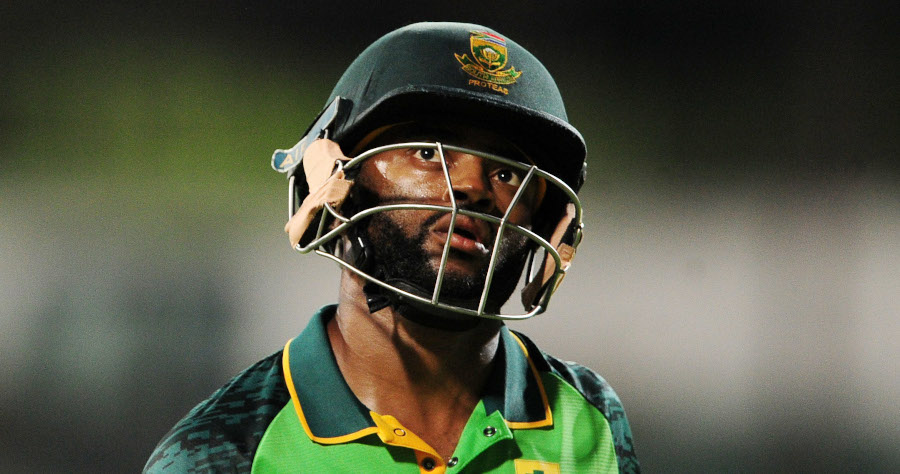The World Cup narrative will focus on the Proteas choking but there’s another ‘C-word’ that could be far more significant, writes RYAN VREDE.
My heart swelled with joy and was crushed by pain in equal measure when I watched Faf du Plessis’ match-defining innings in the Indian Premier League final. The former because it made me proud to see a South African play such a pivotal role in the world’s premier franchise T20 competition. The latter because, inexplicably, he has been omitted from the Proteas World Cup squad.
The selectors should be held accountable for what is a clear dereliction of their duty. There is no cricket reason that could justify Du Plessis’ omission. He would give the team a better chance of winning the World Cup. He’d make any elite nation’s side. It is a travesty that he is watching the tournament from his couch.
However, for the purposes of the World Cup, continuing to lament his absence is pointless. Du Plessis is, however, relevant in a World Cup context insomuch as I’ve heard his exclusion being used as the hammer with which Temba Bavuma is pummelled.
I’m convicted to make a case for the Proteas captain – the other ‘C- word’.
Du Plessis is a better player than Bavuma by any metric used to measure this assertion. Furthermore, an opening pair of Du Plessis and Quinton de Kock have significantly more presence and match-defining potential than one featuring Bavuma. These are things even a modestly knowledgable cricket consumer would know.
But Bavuma is there. No amount of lamentation, or not-so-veiled racist bile posted in the comments sections of digital publications, will change that.
It makes sense to me that Bavuma, in a T20I context, is extended the same grace other Proteas captains and opening batters would be and have been. He is 14 innings into his T20I career, averaging 27.33 in that period. This is a respectable record, albeit not one that pins him as a potent threat in the format.
As captain, he has won six of eight matches. These victories were achieved against the West Indies and Ireland. Sterner tests await at the World Cup, and the measure of the man will be established there.
I see no point in the process designed to break down the national team captain prior to a major event. If he fails with the bat, he is in good company. Some iconic Proteas batters have been shown up at World Cups. They were judged on the merits of their performance, or in this case, underperformance, not the amount of melanin in their skin.
Similarly, some fine Proteas captains have been exposed as having inadequate skills under pressure at previous tournaments. Bavuma’s competency in this regard is yet to be tested. Whether he has the requisite skills for the job, or comes up short, will be established in the coming month.
I suspect that if he fails, millions of biases will be confirmed, which saddens me because it matters that the national captain is judged on the merits of his actions in a given framework, not expected to fail. Indeed, I suspect many hope he does.
I want Bavuma to succeed because I have a reference for the seismic impact it makes when a black African sports leader does so.
Siya Kolisi winning the World Cup and British & Irish Lions Test series as captain of the Springboks challenged the deep-rooted prejudice that pervaded South African rugby – particularly as it pertained to the leadership qualities of a black African man.
Like Bavuma, Kolisi was not the best available player in his position at the time of his appointment. He may not even be now. But his value as a leader transcends his talent in this context. He was invested in and the fruits of that investment are plain to see. Bavuma deserves this type of investment, until time reveals it as a good or bad one.
It also matters that he performs with the bat. Not only does this make a strong statement to his team, but there is broader significance in a black African batsman excelling in the format’s showpiece event.
Most people can only be what they can see, and having a reference point for excellence at the game’s elite level will have a generational impact for black African batsmen, present and future.
It is telling that of the top-20 highest run-scorers in the current CSA T20 Knock Out Cup, only two – Maphelo Nqolo and Mncedisi Malika (ranked 12th and 20th, respectively) – feature. The next best black African batter is Sisanda Magala (43rd), who is primarily a bowler.
Bavuma excelling won’t solve the problem of a lack of high-quality black African batters in our professional ranks, but it is not insignificant.
Du Plessis’ feat in the IPL final cranked up the pressure on Bavuma. Pressure is the playground of the best players and leaders.
Bavuma deserves the grace to be exposed as either having the capacity to thrive under pressure, or to be crushed by it due to deficiencies in his constitution as a player and leader.
ALSO READ: ‘Free-spirited’ Proteas not bringing baggage into T20 World Cup







